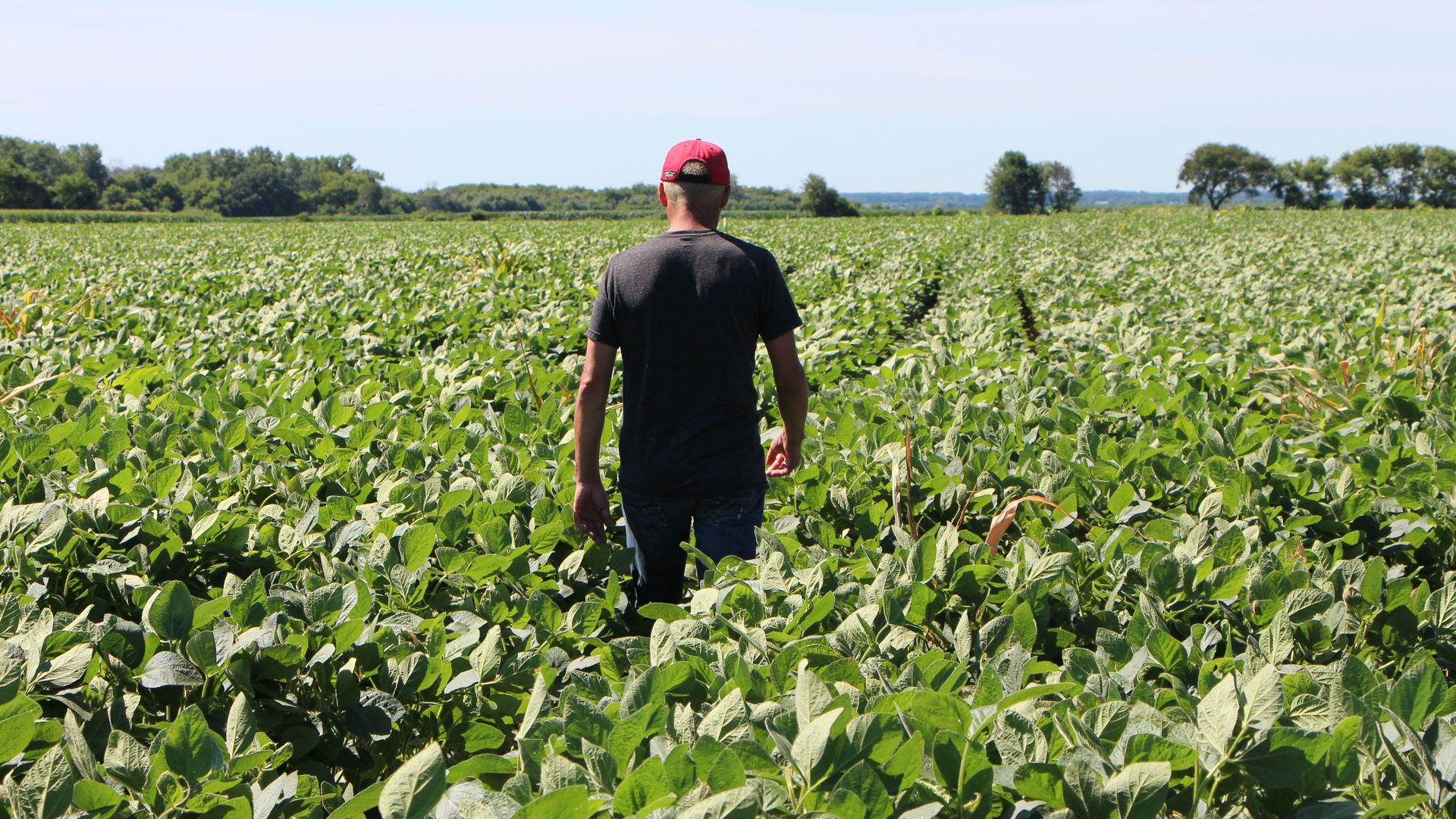Updated Jul 25, 2018 - Economy
Expert VoicesTrump's farmer bailout a temporary salve, but long-term risks mount
Add Axios as your preferred source to
see more of our stories on Google.

Farmer Terry Davidson walks through his soy fields July 6, 2018, in Harvard, Illinois, the same day China imposed retaliatory tariffs aimed at the U.S. soybean market. Photo: Nova Safo/AFP via Getty Images
